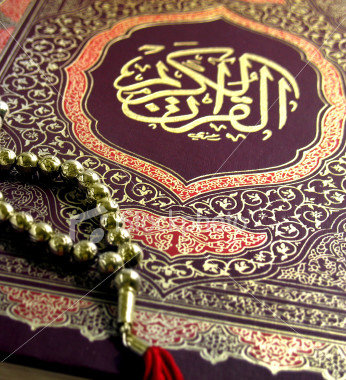Posts Tagged ‘polytheism’
Suicide Bombing
Posted by: KING-slave of ALLAH ! on: November 29, 2009
- In: All | Allah الله | Islam | MC-Islam | Miss-Conception | Satan/Shaitan/Jinn
- 6 Comments
Suicide Bombing
Al-Nisa (The Women) Sura 4: Verse 29 (Partial)
“… And kill yourselves not, for God is truly Merciful to you.”
People who are driven to despair are thus reminded to have faith in God’s mercy in the hope that they may be relieved of their suffering. Since suicide is prohibited, anyone who tries to facilitate it, or acts as an accomplice, is also liable to a deterrent punishment that may be quantified by the court while taking into consideration the material circumstances of the case. Commentators have, moreover, drawn a five-point conclusion from this verse as follows:
1. the obvious meaning is that suicide is forbidden;
2. the text also stipulates that ‘you may not kill one another’ nor facilitate suicide;
3. one may not undertake a task which is likely to cause his own death, even if it be in lieu of a religious obligation;
4. no one should deprive himself of the necessities of life to the point of self-destruction; and
5. the text covers cases of self-destruction regardless of the manner in which it is done.
The manuals of Islamic law are silent on the issue of suicide bombing, a disturbing phenomenon of our time that became frequent in connection with Israeli-Palestinian conflict, especially when Israel unleashed a new wave of aggression on the street processions of unarmed Palestinian youth in 2000-1. The aftermath of 11 September 2001 and more recently the horrendous violence in Iraq and Afghanistan, added new dimensions to the incidence of suicide bombing among Muslims.
Suicide bombing in the name of Islam is a ‘sociopolitical phenomenon, not a theological one’. And any long-term solution to the problem must also address the causes that have brought so much pain and hopelessness to many Muslim societies.
It would be simplistic to lump the Palestinian suicide bombing with Al-Qaedah terrorist activities. One can hardly deny the genuine suffering of the Palestinian people and legitimacy of their struggle against sustained Israeli brutalities. It would appear equally simplistic, however, to equate suicide bombing with martyrdom and jihad. This is because suicide bombing contravenes two fundamental principles of Islam: prohibition against suicide, and deliberate killing of non-combatants. The argument that proceeds over reciprocity and retaliation is also flawed by the involvement of innocent non-combatants in suicide bombing.
Those who have raised the issue of ‘collateral damage’ in this context have also exaggerated their case, simply because non-combatants are chosen as the direct target of suicide bombing. They are, as such, neither collateral nor incidental.
The Muslim fighter who is motivated by the spirit of jihad enters the battle, not with the intention of dying, but with the conviction that if he should die, it would be for reasons beyond his control. Martyrdom in Islam does not begin with suicidal intention, let alone the linkage of that intention with the killing of non-combatants.
To justify suicide bombing under the banner of retaliation, or as a form of jihad, is therefore questionable, simply because it begins on an erroneous note, which goes against the essence both of just retaliation and justified jihad.
Compiled From:
“Shariah Law – An Introduction” – Mohammad Hashim Kamali, pp. 283-288

![]() Note:I’d love to see who visit my website,your views about website. Click here to leave your feedback.
Note:I’d love to see who visit my website,your views about website. Click here to leave your feedback.

The Best Days of this World
Posted by: KING-slave of ALLAH ! on: November 20, 2009
- In: All | Allah الله | Islam
- 1 Comment
The Best Days of this World

The Virtues of the first 10 days of Dhul Hijja:
1. Ahadith of the Prophet (s):
قال النبي –صلى الله عليه وسلم-( مامن أيام العمل الصالح فيها أحب إلى الله من هذه الأيام قالوا يا رسول الله : ولا الجهاد في سبيل الله قال ولا الجهاد في سبيل الله إلا رجل خرج بنفسه وماله فلم يرجع من ذلك بشئ) رواه البخاري
The Prophet (s) said: “There are no days in which good deeds are more beloved to Allah than during these days. The Sahaba said: Oh Rasul Allah, not even jihad in the path of Allah? He (s) said: Not even jihad in the path of Allah except for the man who goes out in the path of Allah with his life and his wealth and returns with neither of them.”
وقال ( أفضل أيام الدنيا أيام العشر) رواه البزار وصححه الالبانى.
And he (s) said: “The best days of this world are these ten.”
2. Allah swears by these 10 days in the Qur’an:
قول الله تعالى: ((وَالْفَجْرِ، وَلَيَالٍ عَشْرٍ)) سورة الفجر (1-2)، قال ابن كثير رحمه الله: المراد بها عشر ذي الحجة
Allah says: “By the dawn, and by the 10 nights” [Qur’an, 89:1-2]. Ibn ‘Abbas, Ibn al-Zubayr, Mujahid and others of the earlier and later generations said that this refers to the first ten days of Dhul Hijjah. Ibn Katheer said: “This is the correct opinion.”
قال تعالى: ((وَيَذْكُرُوا اسْمَ اللَّهِ فِي أَيَّامٍ مَّعْلُومَاتٍ)) سورة الحج(28)، قال ابن عباس: أيام العشر
Allah says: “…and mention the name of Allah on appointed days…” [Qur’an, 22:28] Ibn ‘Abbas said these are the ten days.
3. These ten days are better than Ramadan:
قال المحققون من أهل العلم: أيام عشر ذي الحجة أفضل الأيام، وليالي العشر الأواخر من رمضان أفضل الليالي.
Most scholars adopt the opinion that these days are better than the last ten days of Ramadan. However, what holds the last ten days of Ramadan at a higher status is the Night of Power (Laylat ul-Qadr) which is equivalent to one thousand months (83.33 years).
تضاعف فيها الحسنات قال ابن عباس”: العمل فيهن بسبعمائة ضعف”
The rewards are multiplied in these days. Ibn ‘Abbas said: “(The reward for good) deeds are multiplied seven hundred times in these days.”
قال الاوزاعى: “بلغني أن العمل في أيام العشر كقدر غزوة في سبيل الله يصام نهارها ويحرس ليلها إلا أن يختص امرء بشهادة”
Al Awzaa’i said: I was informed that good deeds during the ten days are the equivalent (in reward) to a battle in the path of Allah, in which the day is spent in fasting and the night in safeguarding, except if one is bestowed with martyrdom.”
In Ramadan doing good deeds and struggling in worship, especially during the last ten nights, is easier than during these days for a few reasons. Firstly, the atmosphere of the month of Ramadan, whether culturally, spiritually, or traditionally, makes it easier to focus and strive. Secondly, the shayateen are chained. So, to get that drive and direction we had in Ramadan, is much harder when we have most likely fallen out of “Ramadan mode.” However, since the `ibada is more difficult, the reward is greater. So let’s keep this in mind and get ready to really work hard.
The Plan of Action for these 10 days:
1. Really feel this blessing and realize that it is an opportunity of a lifetime, because none of us know if we will witness these 10 days again.
كان خالد بن معدان يقول( إذا فتح لأحدكم باب للخير فليسرع فاءنه لا يدرى متى يغلق عنه
Khalid bin Mi’dan used to say: “If the door for good is opened for one of you, then rush (to take advantage) because you don’t know when it will close.”
2. Have high aspirations in your worship and use the examples of the ijtihad of the saliheen as motivation.
3. Take advantage of the opportunities to get the reward of hajj while being elsewhere.
قال-صلى الله عليه وسلم-( من صلى الفجر في جماعة ثم قعد يذكر الله حتى تطلع الشمس ثم صلى ركعتين كانت له كأجر حجة وعمرة تامة تامة تامة
The Prophet (s) said: “Whoever prays fajr in congregation and then sits in remembrance of Allah until the sun rises, then prays two rak’aat, he has the full reward of hajj and `umrah.”
4. Perfecting the fara`idh (obligatory actions):
Often times we become busy trying to do extra deeds, but neglect the fact that perhaps maybe what is obligatory upon us is not at the level it should be. There is no way for a person to become close to Allah other than through the obligatory actions, as is apparent in the famous hadith qudsi in which Allah says: “My servant does not become closer to me by anything more beloved to me than what I have obligated upon him.”
Reasonable Goals:
1. Khatm of Qur’an: equivalent to more than half a million hasanaat during these days. Let’s try to complete the recitation of the Qur’an during these days, ending by ‘Asr time on the day of ‘Arafah and spending from ‘Asr to Magrhib in du’aa.
2. Qiyam al-Layl:
Rasulallah (s) said: “Whoever stands in prayer, reciting 1,000 verses is written among the muqantareen.” A qintar is equal to 70,000 dinar. The recitation of the last two ajzaa` of the Qur’an is equivalent to 1,000 verses.
3. Extra Salah during the day: The Prophet (s) said: “There is not a Muslim who prays twelve raka’at per day, other than the obligatory prayers, except that a palace is built for him in paradise.”
4. Dhikr: The best form of worship to do in these ten days as apparent in the hadith:
Ibn `Umar said that the Messenger of Allah (s) said, “There is no day more honorable in Allah ’s sight and no acts more beloved therein to Allah than those in these ten days. So say tahlil (There is no deity worthy of worship but Allah: La ilaha illAllah), takbir (Allah is the greatest: Allahu akbar) and tahmid (All praise is due to Allah: alhumdulillah) a lot.” [Ahmad, 7/224]
The Messenger of Allah, may Allah bless him and grant him peace, said, “The best du`a’ is du`a’ on the day of `Arafah, and the best thing that I or the Prophets before me have said is ‘There is no god but Allah, alone, without any partner’ (La ilaha illa’llah, wahdahu la sharika lah)” [Muwatta, Malik].
7. Reviving the Sunnah of Takbir:
Ibn `Umar and Abu Hurairah (ra) used to go out in the marketplace during the first ten days of Dhul-Hijjah, reciting takbeer, and the people would recite takbeer when they heard them.
8. Fasting:
The reward of fasting is great, so imagine how much that reward would be multiplied in these days. If one can’t fast all of the 9 days, then at least on the day of `Arafah as it is the greatest day.
Abu Qatadah reported that the Messenger of Allah (s) said, “Fasting on the day of ‘Arafah is an expiation for two years, the year preceding it and the year following it. Fasting the day of `Ashura is an expiation for the year preceding it.” [This is related by “the group,” except for al-Bukhari and at-Tirmidhi]
The Prophet (s) said “There is no day that Allah will free people more than the day of `Arafah.”
`Ali (ra) used to advise people to say “Oh Allah free my neck from the fire” on the day of `Arafah.
9. Du`a’:
Especially on the day of `Arafah, but also at anytime. Keep in mind the times where du’aa is more likely to be accepted and ask during those times.
* The last third of the night
* Between the adhaan and iqaamah
* During the rain
* In sujood
* Friday
* While fasting
10. Sadaqa (charity):
Give sadaqa during these days, since the reward is multiplied tremendously.
11. Tawba (asking for forgiveness):
Continually renew repentance.
12. Establish ikhlas in `ibada.
13. Check and renew intentions at all times
The Day of `Eid
On the greatest day, remained focused as it is still part of the first 10 days which are the best days of the year! Try not to get too caught up in celebrating that you stop doing the worship that you were doing the first 9 days.
The day of ‘Eid: a day for visiting family and performing the sacrifice for one who is able.
By Zahra
Whoever is the first to give another person the news :: FAKE HADITH
Posted by: KING-slave of ALLAH ! on: November 9, 2009
- In: All | Allah الله | Fake Hadith | Hoax-Email Forwards | Hoax-FB Messages | HOAX-Messages | Islam
- 10 Comments
The Prophet Sallallaahu alaihi wasallam has said, “Whoever is the first to give another person the news about the month of Rabi-ul-Awwal, the fire of hell is Haraam for them”. Is this Hadeeth authentic? If it is not, could you explain the warning for those who circulate fabricated Ahadeeth?
We have not come across a Hadeeth in which it is mentioned that the fire of Hell is Haraam upon the first person who gives the news about Rabi’ul Awwal.
If this Hadeeth is fabricated and was not mentioned by Rasulullah Sallallahu Alaihi Wasallam, the person who fabricated the Hadith as well as all those who convey the Hadeeth are deserving of the severe warning of Rasulullah Sallallahu Alaihi Wasallam. Rasulullah Sallallahu Alaihi Wasallam said, “To fabricate my words is not like fabricating any other person’s words. The person who fabricates my words should prepare an abode for himself in the fire of hell.” (Sahih al Bukhari, Hadith #: 1291).
Unfortunately, due to wide spread ignorance, e-mails containing false information and fabricated Ahadeeth are widely circulated. The creators of such e-mails as well as those who forward them to others should take heed of the severe warning of Rasulullah Sallallahu Alaihi Wasallam. It is therefore imperative that one exercises caution when one receives e-mails of such a nature wherein there is no authentic reference mentioned. Such e-mails or pieces of information should be referred to reliable and learned scholars for verification.
And Allah Ta’ala Knows Best.
The Prophet Glorifies the Black Stone :: Misconception about Prophet !
Posted by: KING-slave of ALLAH ! on: October 21, 2009
- In: All | Allah الله | Islam | MC-Islam | MC-Muhammad [pbuh] | Miss-Conception
- Leave a Comment
Prophet Glorifies the Black Stone:Misconception about Prophet !
Those people, accusing the prophet that he glorifies the Black Stone and the Ka’ba by walking around it, say that these things are stones that don’t differ from those stones that the polytheists used to worship!!
This opinion is completely wrong. Islam is a religion that orders to behave according to high manners and morality and is not against good habits done by other folks before Islam or even after.
For example; there was a Pact held in the pre-Islamic paganism that was called “Al Fudoul Pact”; this pact was held for the sake of supporting the aggrieved, ransoming the kidnapped, helping the indepted and protecting the strangers from the oppressive people of Makkah and so on…
Prophet Muhammad admired this pact and said:
” If I were invited to it, I wouldn’t refuse”.
Another good habit that is inherited from pre-Islamic folks is that inherited from prophet Abraham (PBUH) to walk around Ka’ba and also to kiss the Black Stone.
Many Hadiths say that this Stone is originally from Heaven and many studies done later prove this fact.
And the fact that Prophet Muhammad was kissing the Black Stone is told us by Omar bin Al Khattab in this right Hadith:
” Omar said when he kissed the Black Stone :” I swear to Allah that I know you’re just a stone that doesn’t benefit or even harm; and I’m kissing you just because I’ve seen the Prophet doing it.”
Here everybody has to know that the Prophet’s kissing the Black Stone isn’t out of glorifying it, like the polytheists used to do with their stone gods, but it is an order given him By Allah. This order and many others, like throwing the devil with stones when performing “ Haj” is to show complete obedience to the orders of Allah.
There is another thing that we have to mention here; no order given by Allah is without a season.
An experiment was done and a small part of the Black Stone was analyzed, this proved that the Black Stone has special features that aren’t found in any other stone or element on this earth. It has special rays coming out that can affect all people walking around the Ka’ba from a very far distance even if they couldn’t reach it and kiss it because of the overcrowded place. And this proves also that this Stone is sent by Allah from Heaven.
- In: All | Allah الله | Islam | MC-Islam | MC-Muhammad [pbuh] | Miss-Conception | Mohammad | muhammad | Prophet Muhammad [pbuh]
- 5 Comments
Was Muhammad (P.B.U.H) a True Prophet?
_
 Muhammad (P.B.U.H) the son of `Abdullaah, is Allaah’s Prophet and the Final Messenger sent by Allaah to the inhabitants of the earth. You should know that he (P.B.U.H) is Allaah’s Messenger in reality and truth. The evidences that show his veracity are abundant. None but an infidel, who out of arrogance alone, could deny these signs.
Muhammad (P.B.U.H) the son of `Abdullaah, is Allaah’s Prophet and the Final Messenger sent by Allaah to the inhabitants of the earth. You should know that he (P.B.U.H) is Allaah’s Messenger in reality and truth. The evidences that show his veracity are abundant. None but an infidel, who out of arrogance alone, could deny these signs.
Among these proofs:
1. Muhammad (P.B.U.H) was raised illiterate, unable to read or write, and remained like that till his death. Among all his people, he (P.B.U.H) was known as being truthful and trustworthy. Before receiving revelation, he (P.B.U.H) had no prior knowledge of religion or any previously sent Message. He (P.B.U.H) remained like that for his first forty years. Revelation then came to Muhammad (P.B.U.H) with the Quran that we now have between our hands. This Quran mentioned most of the accounts found in the previous scriptures, telling us about these events in the greatest detail as if he (P.B.U.H) witnessed them. These accounts came precisely as they were found in the Torah sent down to Moses (P.B.U.H) and in the Gospel sent down to Jesus (P.B.U.H). Never the less, neither the Jews nor the Christians believed anything that he (P.B.U.H) said.
2. Muhammad (P.B.U.H) also foretold of everything that would occur to him and his community after him, pertaining to victory, the removal of the tyrannical kingdoms of Chosroes [the royal title for the Zoroastrian kings of Persia] and Caesar, and the establishment of the religion of Islam throughout the earth. These events occurred exactly as Muhammad (P.B.U.H) foretold, as if he (P.B.U.H) was reading the future from an open book.
3. Muhammad (P.B.U.H) also conveyed an Arabic Quran that is the peak of eloquence and clarity. The Quran challenged those eloquent and fluent Arabs of his time, who initially belied him, to bring forth a single chapter like the Quran. The eloquent Arabs of his day were unable to contest this Quran. Indeed, till our day, none has ever dared to claim that he has been able to compose words that equal-or even approach-the order, grace, beauty and splendor of this Glorious Quran.
4. The life history of this Noble Prophet (P.B.U.H) was a perfect example of being upright, merciful, compassionate, truthful, brave, generous, distant from all evil character, and ascetic in all worldly matters, while striving solely for the reward of the Hereafter. Moreover, in all his actions and dealings, he (P.B.U.H) was ever mindful and fearful of Allaah.
5. Allaah instilled great love for Muhammad (P.B.U.H) in the hearts of all who believed in and met him (P.B.U.H). This love reached such a degree that any of his companions would willingly sacrifice his (or her) self, mother or father for him (P.B.U.H). Till today, those who believe in Muhammad (P.B.U.H) honor and love him. Anyone of those who believe in him would ransom his own family and wealth to see him (P.B.U.H) even if but once.
6. All of history has not preserved the biography of any person in the manner it has preserved the life of Muhammad (P.B.U.H) who is the most influential human in history. Nor has the entire earth known of anyone whom every morning and evening, and many times thereafter throughout the day, is thought of by those who believe in him. Upon remembering Muhammad (P.B.U.H) the believers in him will greet him and ask Allaah to bless him (P.B.U.H) and exalt his status. They do such with full hearts and true love for him (P.B.U.H).
7. Nor has there every been a man on earth whom is still followed in all his doings by those who believe in him (P.B.U.H). Those who believe in Muhammad (P.B.U.H)sleep in the manner he (P.B.U.H) slept; purify themselves (through ablution and ritual washing) in the manner he (P.B.U.H) purified himself; and adhere to his practice in the way they eat, drink, and clothe themselves.
Indeed in all aspects of their lives, the believers in Muhammad (P.B.U.H) adhere to the teachings he (P.B.U.H) spread among them and the path that he traveled upon during his life. During every generation, from his day till our time, the believers in this Noble Prophet (P.B.U.H) have fully adhered to his teachings. With some, this has reached the degree that they desire to follow and adhere to the Prophet’s way in his (P.B.U.H) personal matters regarding which Allaah has not sought of them to adhere to in worship. For example, some will only eat those specific foods or only wear those specific garments that the Messenger (P.B.U.H) liked.
Let alone all that, all those who believe in Muhammad (P.B.U.H) repeat those praises of Allaah, special prayers, and invocations that he (P.B.U.H) would say during each of his actions during day and night, like: what he (P.B.U.H) would say when he greeted people, upon entering and leaving the house, entering and leaving the mosque, entering and leaving the bathroom, going to sleep and awaking from sleep, observing the new crescent, observing the new fruit on trees, eating, drinking, dressing, riding, traveling and returning from travel, etc.
Moreover, all those who believe in Muhammad (P.B.U.H) fully perform – even to the minute detail – every act of worship, like prayer, fasting, charity, and pilgrimage, as this Noble Messenger (P.B.U.H) taught and as he (P.B.U.H) himself performed. All of this allows those who believe in him (P.B.U.H) to live their lives in all aspects with this Noble Messenger (P.B.U.H) as their example, as if he (P.B.U.H) was standing before them, for them to follow in all their doings.
8. There has never been, nor will there ever be, a man anywhere upon this earth who has received such love, respect, honor, and obedience in all matters, small and large alike, as has this Noble Prophet (P.B.U.H).
9. Since his days, in every region of the earth and during every period, this Noble Prophet (P.B.U.H) has been followed by individuals from all nations, colors and peoples. Many of those who followed him were previously Christians, Jews, pagans, idolaters, or without any religion. Among those who chose to follow him, were those who were known for their sound judgment, wisdom, reflection, and foresight. They chose to follow this Noble Prophet (P.B.U.H)after they witnessed the signs of his truthfulness and the evidences of his miracles. They did not choose to follow Muhammad (P.B.U.H) out of compulsion or coercion or because they had adopted the ways of their fathers and mothers.
Indeed many of the followers of this Prophet (P.B.U.H) chose to follow him during the time when Islam was weak, when there were few Muslims, and when there was severe persecution of his followers on earth. People who have followed this Prophet (P.B.U.H) have not done so to acquire some material benefits. Indeed many of his followers have suffered the greatest forms of harm and persecution as a result of following him. Despite all this harm and persecution, this did not turn them back from his religion. All of this clearly indicates, to anyone possessing any sense, that this Prophet (P.B.U.H) was truly and really Allaah’s messenger and that he (P.B.U.H) was not just a man who claimed prophethood or spoke about Allaah without knowledge.
9. With all this, Muhammad (P.B.U.H) came with a great religion in its creedal and legal make-up. Muhammad (P.B.U.H) described Allaah with qualities of complete perfection, and at the same time in a manner that is free of ascribing to Him any imperfection. Neither the philosophers or the wise could ever describe Allaah like such. Indeed it is impossible to imagine that any human mind could conceive of an existing being that possesses such complete ability and greatness Who has subdued the creation, Who has encompassed everything in the universe, small or large, and Who possesses such perfect mercy. Nor is it in the ability of any human being to place a perfect law based upon justice, equality, mercy and objectivity for all human activity on earth like the laws that Muhammad (P.B.U.H) conveyed to all spheres of human activity – like buying and selling, marriage and divorce, renting, testimony, custody, and all other contracts that are necessary to uphold life and civilization on earth.
10. It is impossible that any person conceive wisdom, morals, good manners, and nobleness of characters as what this honorable Prophet (P.B.U.H) brought. In a full and complete manner, Muhammad (P.B.U.H) spread a teaching regarding character and manners toward one’s parents, relatives, fiends, family, humanity, animals, plants and inanimate objects. It is impossible for the human mind alone to grasp all of that teaching or come with a similar teaching. All of that unequivocally indicates that this Messenger (P.B.U.H) did not bring any of this religion from his own accord, but that it was rather a teaching and inspiration that he (P.B.U.H) received from The One Who created the earth and the high heavens above and created this universe in its miraculous architecture and perfection.
12. The legal and creedal make-up of the religion that the Messenger Muhammad (P.B.U.H) brought resembles the engineering of the heavens and the earth. All of that indicates that He Who created the heavens and the earth is The One Who sent down this great law and upright religion. The degree of inimitability of the Divine law that was sent down upon Muhammad (P.B.U.H) is to the same degree of inimitability of the Divine creation of the heavens and the earth. For just as humanity cannot create this universe, in the same manner humanity cannot bring forth a law like Allaah’s law that He sent down upon His servant and messenger Muhammad (P.B.U.H).
INSTIGATE LOVE TO ALLAH
Posted by: KING-slave of ALLAH ! on: October 7, 2009
- In: All | Allah الله | Islam
- Leave a Comment
INSTIGATE LOVE TO ALLAH
All praise is due to Allah alone,
who perfectly controls everything. May He send salutations and exalt the mention of the Warner and the Bringer of Glad Tidings – our Prophet Muhammad (peace be upon him), his family and all his companions.
One of the attributes of Allah is that He Loves His believing slaves in a fashion which befits His Majesty and Might; His slaves in turn love Him more than their wealth, children and their own selves.
Allah says what means:
“Allah will bring a people whom He will love and they will love Him.” (Al- Ma’idah:54)
It is mutual love between the Lord and His slaves:
“And of mankind are some who take (for worship) others besides Allah as rivals (to Allah). They love them as they love Allah. But those who believe, love Allah more (than anything else).” (Al-Baqarah: 165)
The Ruling on Loving Allah
Loving Allah and His Messenger (peace be upon him) more than we love our family, our possessions and anything else in this world is a part of being a true believer in Islam.
Anas narrated that the Prophet (peace be upon him) said:
“I swear by The One in Whose Hands is my soul, none of you will be a complete believer until I am dearer to him than his father, his son, and all of mankind.” (Bukhari)
Loving Allah is a Sign of Strong Belief
The Prophet (peace be upon him) informed us that it is a quality of belief and a sign of enjoying the sweetness of faith is realized when the love of Allah and His Messenger is greater than that of anyone or anything else. Anas Ibn Malik narrated that the Prophet (peace be upon him) said:
“One who attains the following three things will taste the sweetness of faith: To make Allah and His Messenger more beloved to himself than anything else; to love a person for no other reason except for the sake of Allah; and to hate to return to disbelief just as much as he would hate to be thrown into fire.” (Bukhari & Muslim)
Loving Allah is Following the Way of the Prophet (peace be upon him)
Allah says (what means):
“Say (O Muhammad): ‘If you (really) love Allah, then follow me, Allah will love you and forgive you your sins.'” (Al ‘Imran:31)
How much do we truly follow the Prophet (peace be upon him)? Where are we when it comes to following his Sunnah in our worship, transactions and manners? Where are we when it comes to following his Sunnah in our supplications, remembrance of Allah, recitation of the Quran, seeking the assistance of Allah, relying on Him and taking refuge in Him? Where are we when it comes to following his Sunnah by being kind to our friends, neighbor and parents, and when it comes to being generous to guests and visiting the sick? Where are we when it comes to following his Sunnah in our etiquettes, humility, mercy, leniency and forgiveness? Where are we when it comes to following his Sunnah in bravery, wisdom and Jihad against the enemies of Allah everywhere?
The Qualities of Those Whom Allah Loves
To do good:
“And do good. Truly, Allah loves the good-doers.” (Al-Baqarah:195)
To repent and purify themselves:
“Truly, Allah loves those who turn unto Him in repentance and loves those who purify themselves.” (Al-Baqarah:222)
To be are pious:
“Yes, whoever fulfils his pledge and fears Allah much; verily, then Allah loves those who are the pious.” (Al ‘Imran:76)
To be patient:
“But they never lost heart for that which did befall them in Allah’s way, nor did they weaken nor degrade themselves. And Allah loves the patient.” (Al ‘Imran:146)
To rely on Allah:
“Then when you have taken a decision, rely on Allah, certainly, Allah loves those who rely on Him.” (Al ‘Imran: 159)
To be just:
“And if you judge, judge with justice between them. Verily, Allah loves those who act justly.” (Al-Ma’idah:42)
To be sincere in Jihad:
“Verily Allah loves those who fight in His Cause in rows (ranks) as if they were a solid structure.” (As-Saff:4)
Beware of Having The Following Qualities
Allah has described in His Book the qualities that we must avoid if we want to one of His believing servants that He loves:
Disbelief: “But if they turn away, then Allah does not like the disbelievers.” (Al ‘Imran:32)
Transgression: “And fight in the way of Allah those who fight you, but transgress not the limits. Truly, Allah likes not the transgressors.” (Al-Baqarah:190)
Mischief-making: “And they (ever) strive to make mischief on the earth. And Allah does not like the mischief-makers.” (Al- Ma’idah:64)
Oppression: “But whoever forgives and makes reconciliation, his reward is with Allah. Verily, He likes not the oppressors.” (Ash-Shoora:40)
Pride and boastfulness: “Verily Allah does not like such as are proud and boastful.” (An-Nisa’:36)
Betrayal: “And argue not on behalf of those who deceive themselves. Verily, Allah does not like anyone who is a betrayer, sinner.” (An-Nisa’: 107).
Publicly uttering evil: “Allah does not like that the evil should be uttered in public except by him who has been wronged.” (An-Nisa’:148)
Extravagance: “Eat and drink but waste not by extravagance, certainly He (Allah) likes not those who waste by extravagance.” (Al-A’raf:31)
Taking pride and being ungrateful: “Remember when his people said to him: Do not exult (with riches, being ungrateful to Allah). Verily, Allah likes not those who exult (with riches, being ungrateful to Allah).” (Al- Qasas:76)
How to Earn Allah’s Love
The true description of attaining Allah’s love comes from a Qudsi Hadith,
Abu Hurairah narrated that the Prophet (peace be upon him) said on behalf of his Lord:
“I will declare war against him who shows hostility to a pious worshiper of mine. And my servant never comes closer to Me by virtue of anything more than that which I have made compulsory upon him, and my slave continues to draw closer to me by performing optional good deeds until I love him, and if I were to love him I become the hearing by which he hears, the eyesight by which he sees, the hand by which he strikes and the legs by which he walks.” (Bukhari & Muslim)
Things Which Instigate Allah’s Love
Ibn Al-Qayyim, may Allah have mercy upon him, mentioned some examples of things which instigate the love of Allah:
1. Reciting the Quran with attentiveness and pondering over its meanings.
2. Performing optional acts of worship after fulfilling the obligatory ones.
3. Always remembering Allah in the heart, by the tongue and deeds, because one will benefit proportional to the amount that he remembers Allah.
4. Favoring His love over any other love, particularly when your desires become strong.
5. Striving hard to reach that which He loves.
6. Learning and pondering over His qualities and attributes, because the one who learns and ponders over the qualities and attributes of Allah will certainly love Him due to this.
7. Thinking about His apparent and concealed favors and kindness.
8. Supplicating and appealing to Him during the last third of every night, reciting His Book, standing with full servitude before Him and begging for His forgiveness.
9. Being around righteous people who sincerely love Allah and learning the best of what they say, just as one would pick the best fruit from a tree. Also, one should not speak unless one is certain that this is the correct thing to do and that one will benefit by this.
10. Refraining from anything which might become an obstacle between oneself and Allah.
All these can be achieved by being willing to perform them and having insight, which can only happen after the help of Allah.









































 Oh Allah,Please Forgive me
Oh Allah,Please Forgive me Ex-Christians-Now Muslim,Alhamdulillah
Ex-Christians-Now Muslim,Alhamdulillah I Love My Prophet Muhammad s.a.w
I Love My Prophet Muhammad s.a.w
















![Fake Grave of Prophet Muhammad [pbuh]](https://islamgreatreligion.files.wordpress.com/2009/07/prophet_muhammad_pbuh_tomb4.jpg)


















Recent Comments